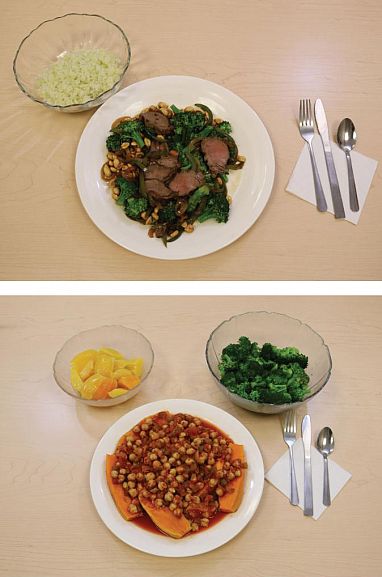Which diet is best for losing weight?
“Which diet is best for losing weight?”
That’s a question I’m asked a lot.
Few seem to have a straight answer for that one, except for people who have deeply held religious-like, ideological beliefs around food. Keto adherents are quite sure that avoiding carbs is the way to go. For vegans, eliminating animal products provides a clear path to health. If you’d like to experience the passion of an old school religious war without the bloodshed, head over to your favorite social media battlefield and read a few keto responses to a vegan post or vegan responses to keto posts. While they may not actually be killing each other, each is convinced that the other’s dietary habits will do it for them.
Low-carb, High-fat vs. High-carb, Low-fat
That brings us to Dr. Kevin Hall of the National Institutes of Health (NIH), who has entered the arena as a peacemaker of sorts by providing combatants with a healthy dose of science. Dr. Hall designed a study where participants would be fed either a high-fat, low-carb diet or a low-fat, high-carb diet. The participants had two weeks in each arm of the trial, so that they could be compared to themselves. Like a previous study he had done at the NIH looking at an ultra-processed diet vs. a whole foods diet, all the food was provided to the participants and their activity was carefully tracked. Also like the former study, participants could eat as much as they wanted and the food was rated by them as pretty good in both arms of the trial.
The folks on the low-fat diet ate about 500-700 fewer calories a day, but had higher insulin and blood sugar levels (suspected drivers of some diet-related diseases). The people doing the high-fat diet ate more calories, but had lower insulin and blood sugar levels. There were possibly advantages to both diets.
So, back to the original question, which one produced more weight loss?

Examples of dinners given to study participants: low-carb, animal-based diet (top) and low-fat, plant-based diet (bottom). Amber Courville and Paule Joseph, NIH
Here’s where we need to go back to Dr. Hall’s previous work on ultra-processed vs. whole foods diets.
Participants in this study lost about 2 pounds on the whole foods diet and gained 2 pounds on the ultra-processed one. When he designed the low-fat vs. low-carb study, he pretty much avoided giving the participants ultra-processed foods.
The short answer is that they both resulted in weight loss, but the low-fat diet resulted in more body fat loss in the participants. Case closed? The vegans win, right? But wait! These weren’t restrictive diets. I told you earlier that the people in the study could eat as much as they wanted. Neither the low-fat nor the low-carb participants were hungry and they both lost weight, though the low-fat participants lost a little bit more. How?
OK, but the vegans still win? Sort of. Plant-based diets are probably better for you, both in the short term, like in this study and in the long term, as Dean Ornish and others have shown with improved cardiovascular outcomes. So, if you can avoid eating animals, that might be best for you and for the environment. But even if you can’t or don’t want to (and I don’t want to either, so don’t feel bad), if you can avoid ultra-processed foods (think stuff that has ingredients on the list that you wouldn’t have in your own pantry or in anyone’s pantry for that matter), you’ll be a lot healthier and quite possibly weigh a bit less too.
So, how do I answer the question, “Which diet is best?”
It turns out that it’s not so complicated after all: Any style of eating that avoids ultra-processed foods that you can stick with and enjoy.

